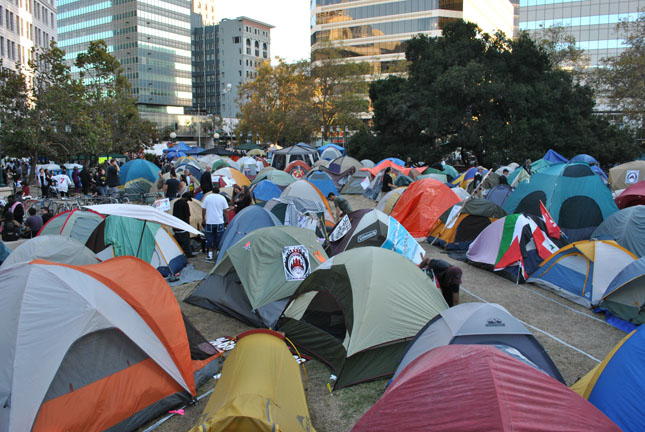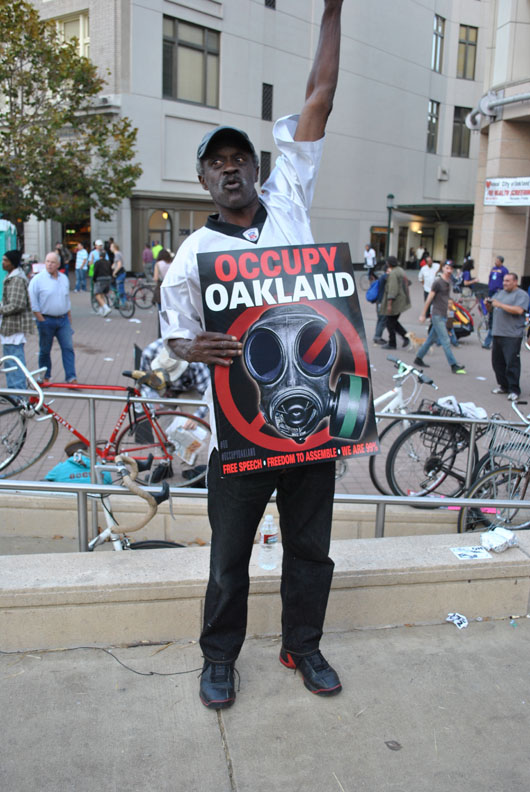Occupy movement lacks organization, not enthusiasm
Similar sentiments were reflected throughout the encampment. Just a hundred feet away, a massive banner reading “Death to Capitalism” stretched the length of the street. The protesters there hailed from all walks of life; senior citizens in wheelchairs stood alongside high school students and young adults.
Yet, something was missing. Everywhere, a wide array of grievances were put forth on posters for the world to see, or shouted through megaphones on makeshift stages. All varied, all demanding different things. The protest lacked unity.
Herein lies the problem, not only with Occupy Oakland, but with the Occupy movement in general; it needs coherency. Although the discord among the protesters does not diminish their legitimacy, it does diminish their political and social impact. Joan Berezin, an Oakland schoolteacher and former civil rights activist, put it this way:
“An occupation with a few hundred people in tents is not going to bring capitalism to its knees or change budget cuts. But I think a real mass movement of people that’s really deep and really well organized all over has the possibility to cause change.”
Among the various problems with the movement, the few who have turned to violence have harmed it more than all. All the people I met while traversing the encampment were remarkably peaceful, not only respectful among themselves but to the myriad of journalists and other visitors to the protest as well. In this diplomatic, albeit disorganized atmosphere, no evidence was seen of the portrait of violence and chaos painted by the mass media.
Yet the police crackdown six hours later, and the rubber bullets that came with it, would dominate most of the news coverage the following morning. The downfall of many a protest comes when its critical mass reaches a point that it begins to attract the kind of people who break in windows and throw rocks at police instead of hold signs and sing songs. And though the latter group comprises the vast majority of Oakland’s Occupy movement, the former are the ones getting most of the coverage.
Such as it is in our society; the ones who shout the loudest get the most proverbial grease, so to speak. Or in other words, the violent renegades are distracting the rest of the world from the fact that most of Oakland’s protesters don’t have any interest in fighting the police. Most of them just want to see change in the horrendous economic inequalities that have become evident in America in the last few decades.
CVHS teacher John Green visited the protests with his family that same Wednesday night.
Despite its disunity, the Occupy movement’s call to action does in fact have a legitimate foundation, one that has been making Americans furious since the stock market crash of 2008, and arguably long before that as well. The fact that most protests, including the Civil Rights movement of the 1960s, often don’t get their footing until years after their local beginnings seems to have been lost on many. Protests derive their power from the bottom up, not the other way around.
For the meantime, the Occupy movement continues to expand globally and locally. Its leaders are attempting to keep the protests peaceful while still sending the powerful message that something must change. And yet amidst all the austerity, hope and even a bit of humor prevail.
The next line from the performer on stage elicited laughter from the crowd.
“These cops are paid to go crazy, yo. But we’re peaceful. Don’t taze me, bro.”


